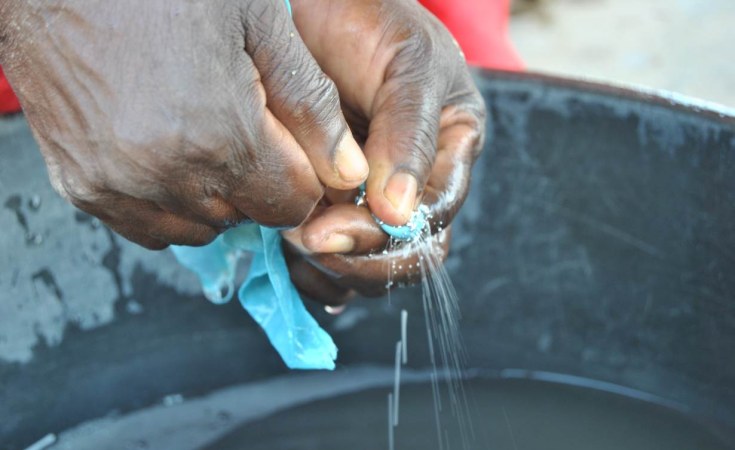More than 31,000 artisanal gold miners in Uganda, with a huge percentage of them women, in collaboration with Planet Gold Uganda and Global Rights Alert, are working towards getting access to mercury-free technologies that do not expose them to mercury poisoning.
The partnership was announced recently during celebrations of the International Day of Women in Mining at Hotel Africana. Many women in the mining sector have been exposed to the negative effects of using mercury to detect gold ores, and yet this was outlawed under the Miamata Agreement of 2013.
Lynn Gitu, the Program leader at Planet Gold Uganda, noted: "We are promoting the use of alternative technologies to help reduce the use of mercury in gold mining such as the gravity concentration tools of sluicing and shaking tables, and the use of borax, which has a short shelf-life and is less harmful to people and the environment."
According to Gitu, the alternative gold mining technologies that don't use mercury are going to be supplied to areas that are known for mining huge deposits of gold, and where mercury is used for gold mining in large volumes like Busia, Mubende, Buhweju and Karamoja.
She added that the alternative mercury-free technology that is being promoted is affordable to the miners. Also, the savings and credit and cooperative organizations that they have formed will help them purchase these technologies.
"The mercury-free technologies that are going to be scaled out by Planet Gold to the districts of Busia, Mubende and Buhweju are affordable, and cost between Shs 3 million and Shs 15 million," she added.
Geoffrey Kamese, the programs manager of Uganda National Association of Community and Occupational Health Organisations (UNACO), stated: "Since Uganda is a signatory to the Miamata Agreement, which bans the use of mercury in mining due to the dangers it causes, the
women involved in mining are subjected to health complications such as shaking of the hands, which one would say is similar to the signs and symptoms of Parkinson's disease, which miners develop over time due to exposure to mercury, miscarriages among women and brain damage."
Kamese added that besides the negative effects that mercury has on humans, its use in the mining sector is also a threat to the environment. Joy Akoli, the head of programs at Global Rights Alert, while speaking at the event, noted: "There are a lot of human rights violations within the mining sector perpetuated by investors and mining companies that don't adhere to the different international and regional human rights standards and frameworks, which not only manipulate the miners but also put their lives at risk. The rights of communities are not protected; they are not respected, and profit is at the forefront of the minds of many of these investors and companies."
Akoli said Global Rights Alert advocates for the rights of the miners by ensuring that both the government and companies respect the rights of not only women in mining but also children.
"It is not a secret that if you go to these mining locations, you are going to find children who are participating in mining activities, which is against the law," she added.
She went ahead and said that much as women are involved in mining, they are not allowed to own land, and called upon the government to reverse this.
"We are living in a patriarchal system where society does not believe that a woman, even if she are participating in mining activities, has a right to own land, and yet the constitution spells out and clearly states that everybody has a right to own land," she emphasized.
Scovia Tusubira, a trading officer working with the ministry of Trade, Industry and Cooperatives at the events, stated that "the ministry is trying to formalize the women in mining and ensure they comply with regulations."


